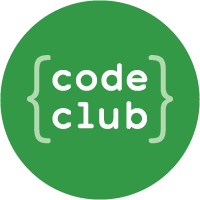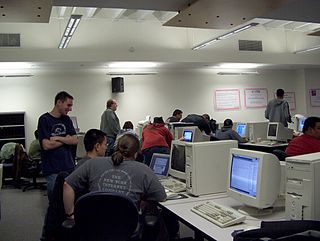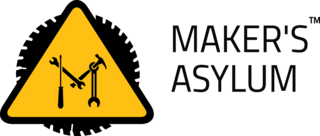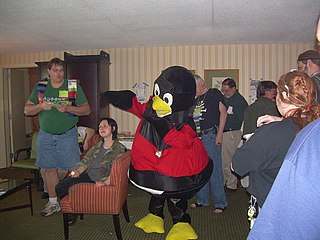 W
WThe Apple User Group Connection (AUGC) was established in 1985 by Apple and led by Apple employee Ellen Petry Leanse. AUGC was formed in response to concerns from users in community user groups that, with release of the Macintosh, development for existing Apple II and Apple III computers was compromised. The idea was for Apple to share information with its user community directly, rather than through the more traditional support and distribution channels. The organization successfully encouraged Apple to pursue early internet technology such as bulletin board systems and ARPANET.
 W
WCode Club is a voluntary initiative, founded in 2012. The initiative aims to provide opportunities for children aged 9 to 13 to develop coding skills through free after-school clubs. As of November 2015, over 3,800 schools and other public venues established a Code Club, regularly attended by an estimated 44,000 young people across the UK. The organization also expanded internationally, and there are now over 13,000 Code Club operating worldwide. Volunteer programmers and software developers give their time to run Code Club sessions, passing on their programming skills and mentoring the young students. Children create their own computer games, animations and websites, learning how to use technology creatively.
 W
WThe Digital Equipment Computer Users' Society (DECUS) was an independent computer user group related to Digital Equipment Corporation (DEC).
 W
WHacDC is a hackerspace in Washington, D.C., and a 501(c)(3) nonprofit. According to one member's description, "HacDC members improve the world by creatively rethinking technology. We break, build, and occasionally abuse technology in the pursuit of greater knowledge about how it works and re-purpose it to build new things." In March 2009, its activities were described by The Washington Post. In April 2011, its activities were also mentioned by FastCompany., and NPR's All Tech Considered.
 W
WHacker Dojo is a 16,600-square-foot (1,540 m2) community center and hackerspace that is based in Santa Clara, California. Predominantly an open working space for software projects, the Dojo hosts a range of events from technology classes to biology, computer hardware, and manufacturing and is open to all types of hackers.
 W
WA hackerspace is a community-operated, often "not for profit", workspace where people with common interests, such as computers, machining, technology, science, digital art, or electronic art, can meet, socialize, and collaborate. Hackerspaces are comparable to other community-operated spaces with similar aims and mechanisms such as Fab Lab, men's sheds, and commercial "for-profit" companies.
 W
WHackerspaceSG is a 1,202-square-foot (111.7 m2) technology community center and hackerspace in Singapore. Predominantly an open working space for software projects, HackerspaceSG hosts a range of events from technology classes to biology, computer hardware, and manufacturing and is open to all types of hackers.
 W
WHarford Hackerspace is a hackerspace, sometimes called a makerspace, located in Baltimore, Maryland. Its creation has been inspired and modeled after the many other Hackerspaces around the United States and Europe.
 W
WThe Homebrew Computer Club was an early computer hobbyist group in Menlo Park, California, which met from March 1975 to December 1986. The club played an influential role in the development of the microcomputer revolution and the rise of that aspect of the Silicon Valley information technology industrial complex.
 W
WInterex EMEA was the EMEA HP Users Organisation, representing the user community of Hewlett-Packard computers.
 W
WHubCityLabs is a hackerspace, sometimes called a makerspace, hackspace, hacklab, located in Moncton, New Brunswick, Canada. Its creation has been inspired and modeled after the many other Hackerspaces around Canada, the United States and Europe.
 W
WA Linux User Group or Linux Users' Group (LUG) or GNU/Linux User Group (GLUG) is a private, generally non-profit or not-for-profit organization that provides support and/or education for Linux users, particularly for inexperienced users. The term commonly refers to local groups that meet in person, but is also used to refer to online support groups that may have members spread over a very wide area and that do not organize, or are not dependent on, physical meetings. Many LUGs encompass FreeBSD and other free-software / open source Unix-based operating systems.
 W
WMaker's Asylum is a makerspace / hackerspace in Mumbai and New Delhi, inspired by Artisan's Asylum, Chaos Computer Club and other maker organizations. According to the Maker's Asylum's website, "Maker’s Asylum is a community makerspace with two locations, Mumbai and Delhi, India. For hardware entrepreneurs, it’s easy access to tools, technology and talent so they can prototype their ideas. For problem solvers, it’s a space to bump ideas with other like and unlike-minded folks who share your passion. For hobbyists, it’s a place to play. Don’t let those ideas die on the drawing board. Make it real."
 W
WThe Metalab is a hackerspace in Vienna's central first district. Founded in 2006, it is a meeting place of the Viennese tech community, hosting events from culture festivals to user groups. It has played a catalyst role in the global hackerspace movement and was the birthplace of several internet startup companies.
 W
WNYC Resistor is a restricted membership private club hackerspace with 25 members in New York, inspired by Chaos Computer Club and other hacker organizations. The New York Times describes it as "kind of frat house for modern-day mad scientists." Its own website describes itself as "NYC Resistor is a hacker collective with a shared space located in downtown Brooklyn. We meet regularly to share knowledge, hack on projects together, and build community."
 W
WPenguicon is a convention in southeastern Michigan designed originally to mix the communities of the science fiction fandom and Linux user groups. In addition to educational panels on science fiction in the media, attendees participate in professional and beginner-level panels on Linux and open-source software. Penguicon takes its name both from a Monty Python sketch and from Tux, the penguin mascot of Linux.
 W
WPower Racing Series is a non-profit power wheels racing competition. It's modeled after the racing series 24 Hours of LeMans however with child sized electric cars. The power racing series competitions are held at Maker Faire events across the USA.
 W
WPumping Station: One is a non-profit hackerspace/makerspace in Chicago, Illinois. It's modeled after similar organizations located in the United States and Europe. The facilities consists of approximately 11,000 square feet (1,000 m2) of shop, workspace, and lounge areas.
 W
WYoung Rewired State was an organisation based in the United Kingdom, which ran events and schemes for technically gifted young people aged 18 and under. It brought together young developers, designers, and those with other technical skills to build projects to attempt to solve real world problems. Many developers who participated in Young Rewired State events learned coding skills outside the traditional school curriculum.